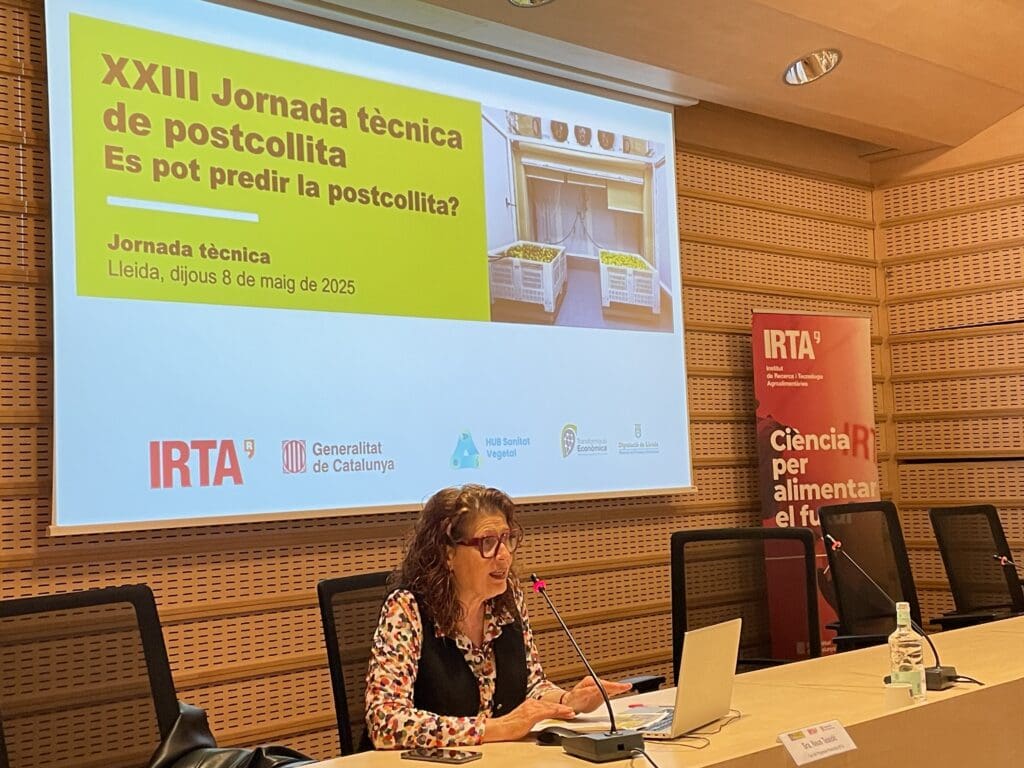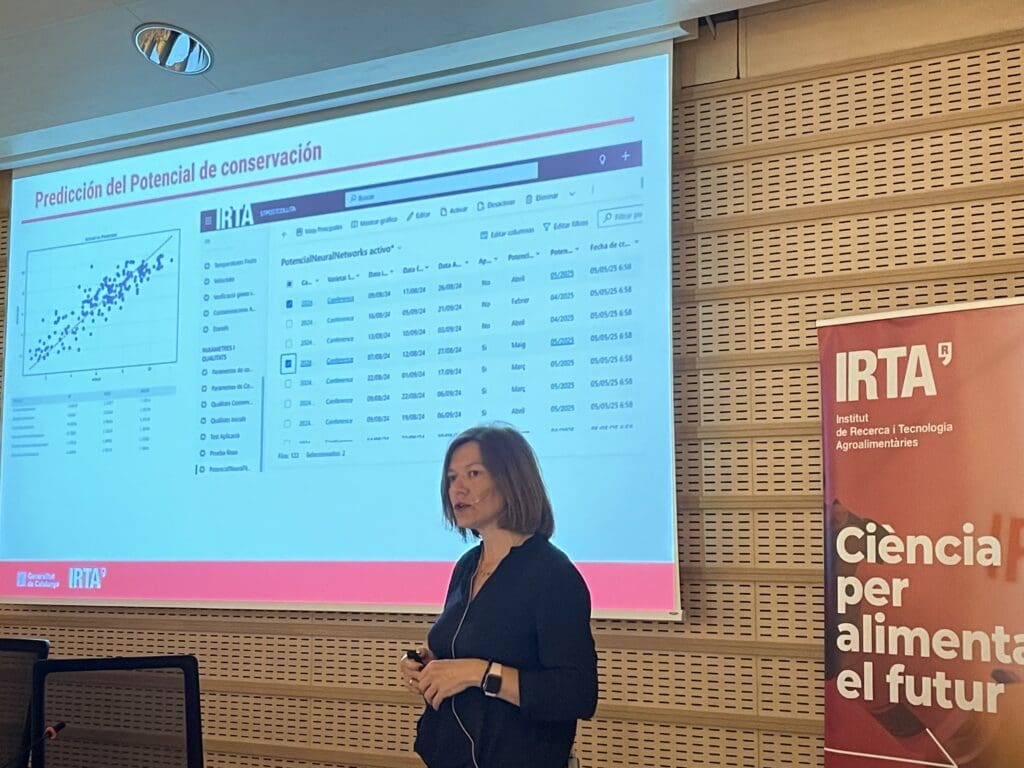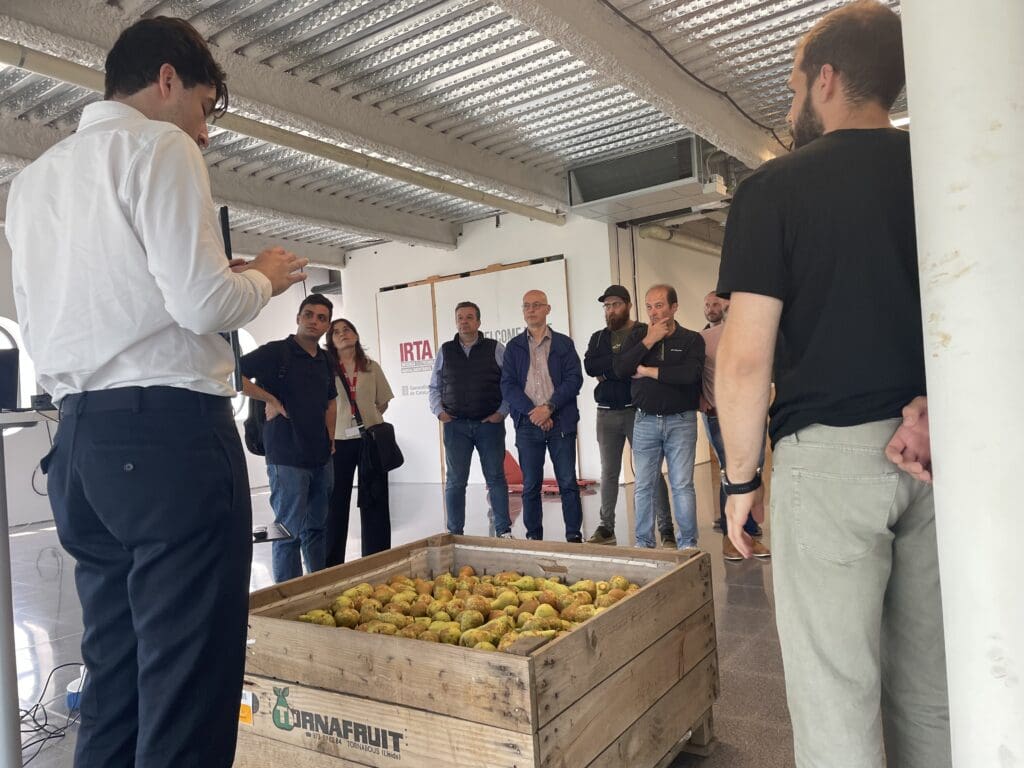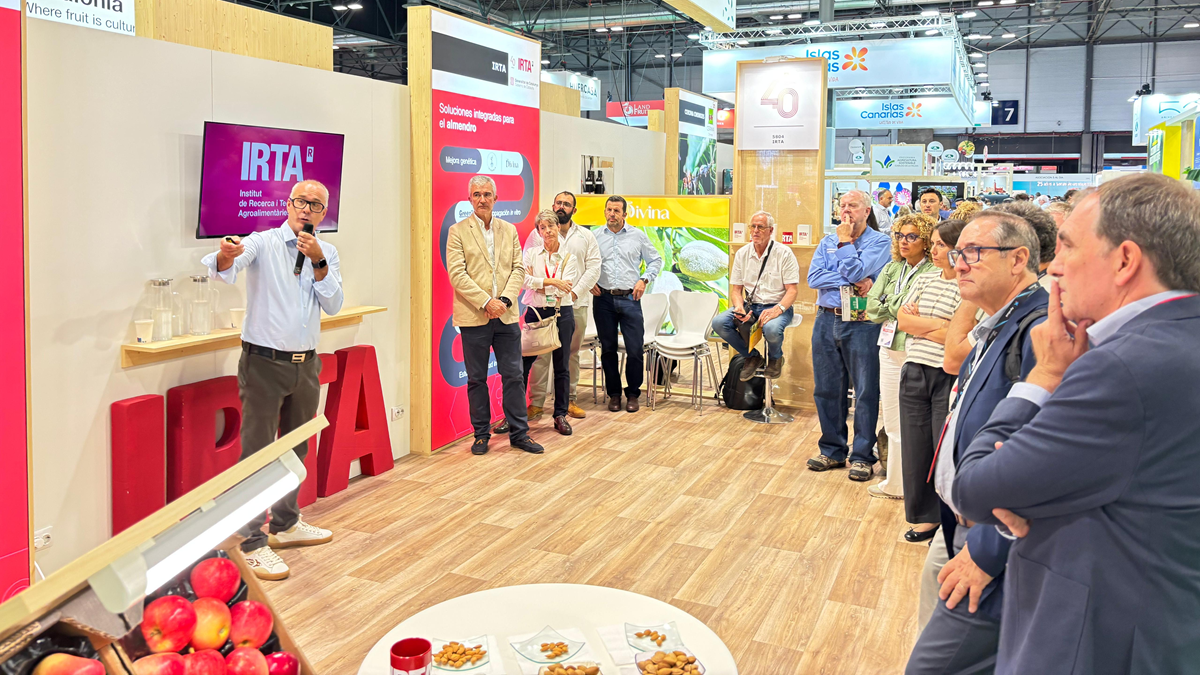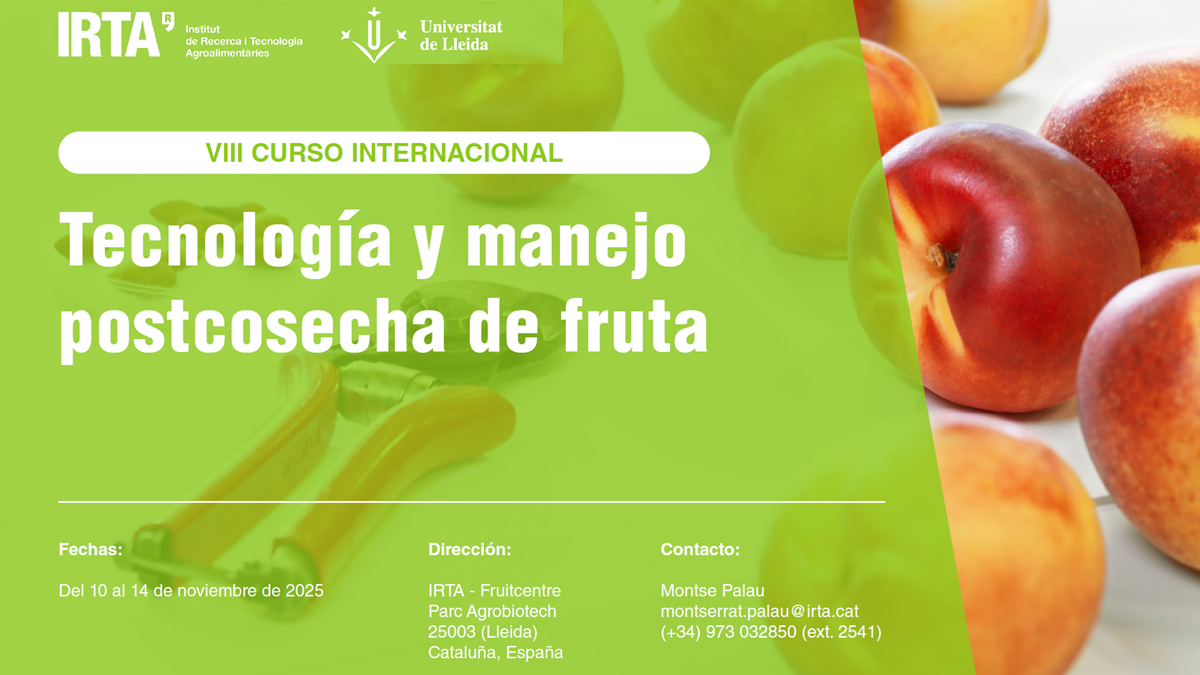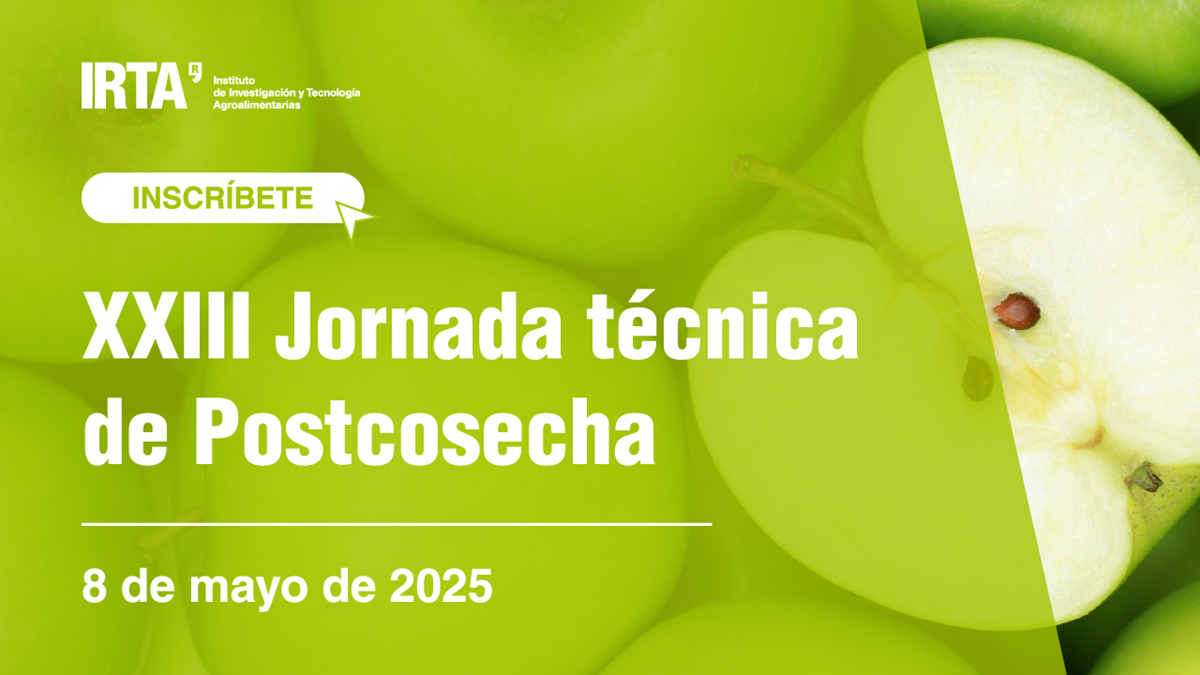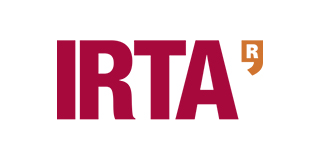

IRTA
Services
The XXIII IRTA Postharvest Technical Conference Highlights Prediction as Key to Efficient and Sustainable Management
The XXIII IRTA Postharvest Technical Conference emphasized prediction as a key tool for efficient, sustainable, and high-quality fruit preservation, bringing together experts, technology, and innovation in support of the sector
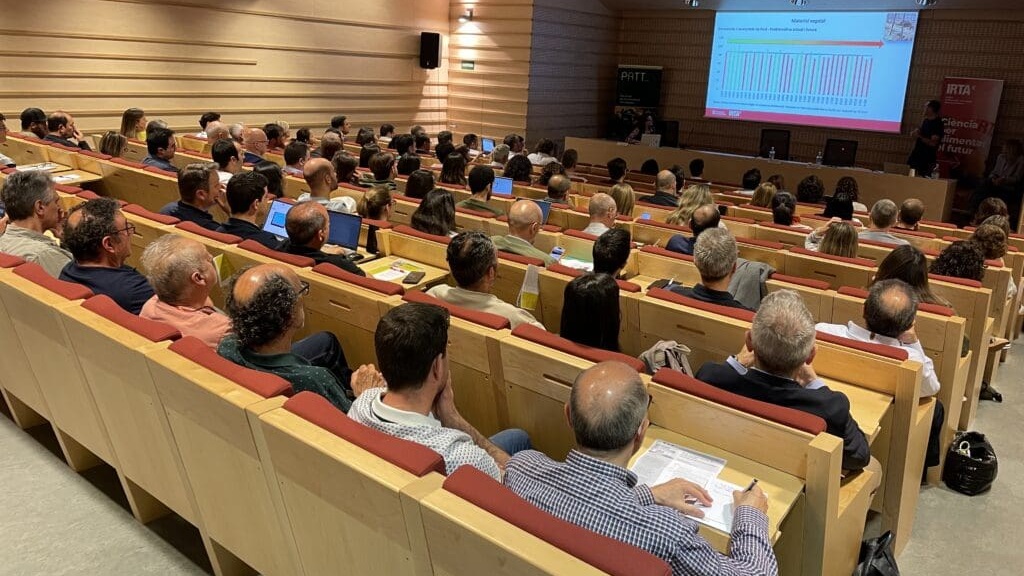
The fruit postharvest sector gathered once again yesterday for the XXIII IRTA Postharvest Technical Conference, held at the Fruitcentre in Lleida (Spain), with over 125 attendees. This annual event, considered a benchmark for the industry, focused this year on prediction as a key tool to address current and future challenges, and to move towards more efficient, sustainable, and quality-driven management.
In a context where climate change, the demand for sustainability, and resource optimization set the agenda for the agri-food sector, the ability to anticipate problems is no longer just a competitive advantage but a necessity. The conference served as a platform to share knowledge on how technologies such as modeling, sensor systems, artificial intelligence, and data analysis can help predict fruit behavior during storage, detect pathologies or physiological disorders before they become visible, and enable more informed decision-making.
Neus Teixidó, Director of the IRTA Postharvest Program, explained:
“Our goal is to preserve our fruit for as long as possible, often under controlled atmosphere conditions that don’t allow direct access for inspection. If we also aim to do this efficiently and sustainably, prediction and anticipation are essential.”
She also added:
“This year we focused on prediction, addressing topics such as final fruit quality, the effects of climate change on fruit trees and their preservation capacity, prediction of defects and decay, and microbiological control of water over time.”
The morning session included presentations by IRTA researchers and industry professionals, covering predictive modeling in postharvest, simulation of climate change scenarios, digital traceability technologies, residue-free solutions for stone and pome fruit, pathogen detection systems using volatile compounds, sensor-equipped chambers, and systems for water quality control.
Innovative commercial solutions were also presented, such as Rypen’s smart technology, Optiflux’s quality prediction system, and non-destructive control technologies developed by IVIA. This broad range of tools and approaches demonstrated how innovation can help transform postharvest management and adapt it to new market and societal demands.
In the afternoon, the event continued with a hands-on session featuring demonstrations of commercial equipment, allowing participants to see technologies in action for defect and Brix detection, size and color measurement, determination of optimal harvest time, and automated water disinfection using peracetic acid. This part of the day was highly dynamic and interactive, and received very positive feedback from attendees.
Teixidó added:
“This is a highly anticipated event in the sector—a space for knowledge sharing, technology testing, and idea generation. The quality of the presentations was outstanding, and participation was high. We are very proud to see this event grow each year and strengthen its role as a reference point.”
For Elena Costa, Head of the IRTA Postharvest Technical Service, the conference also serves as a major showcase of the center’s work:
“It’s an opportunity to present the areas we’re working on, which are closely aligned with the sector’s needs. The presentations are practical and tailored, and the afternoon session enables interaction and networking. We’ve received excellent feedback on our work in digitalization and on the accessibility of the solutions we provide.”
With a full house and highly positive feedback from participants, the event reaffirmed its role as a hub for knowledge transfer and connection between research, industry, and production. IRTA thus reaffirms its commitment to innovation and sustainability in fruit postharvest, and to supporting the sector in adopting useful, applicable, and forward-looking technological tools.


